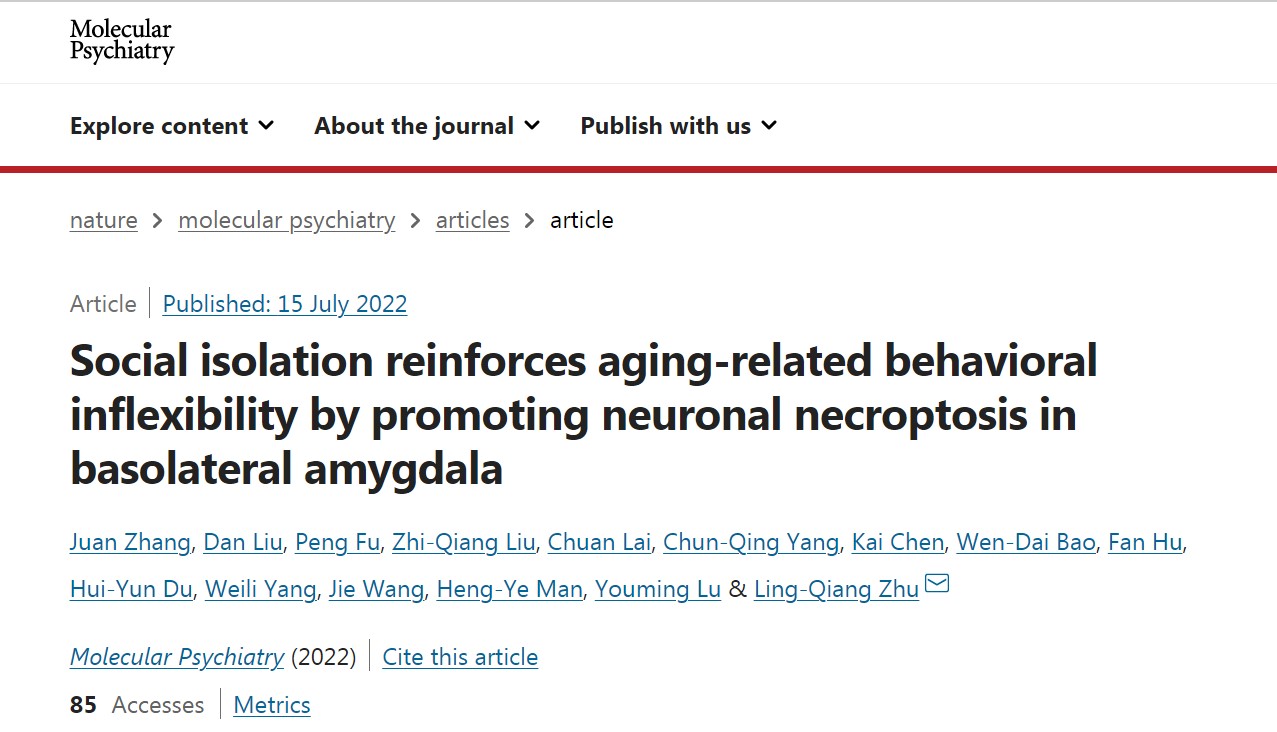Prof. ZHU Lingqiang's team from the School of Basic Medicine, published a paper online in the Molecular Psychiatry entitled Social Isolation Reinforcement Aging-related Behavioral Inflexibility by Promoting Neuronal Necroptosis in Basolateral.

Behavior flexibility is the core adaptive ability of the executive control system of the brain, which is the ability to flexibly adjust behavior according to environmental changes. It enables individuals, institutions and societies to respond quickly to rapidly changing external environments. Behavioral flexibility promotes the development of executive function in adulthood and may mitigate the effects of aging on cognitive abilities.

It is revealed for the first time the molecular mechanism of behavioral flexibility disorder in elderly animals, which confirms that solitary lifestyle promotes the development of behavioral flexibility in aging, and proposes possible intervention strategies.
Original Link:https://www.nature.com/articles/s41380-022-01694-5
